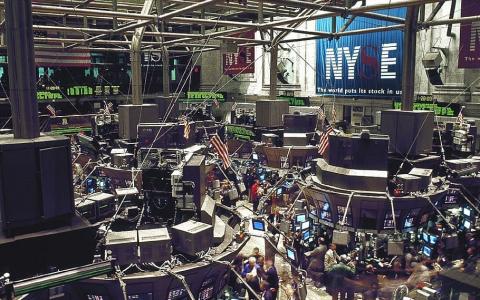
(Business Insider) Legendary investor Jeremy Grantham renewed his warning to investors that the stock market is in a "fully-fledged epic bubble."
In a Tuesday letter titled "Waiting for the Last Dance," the GMO cofounder and chief investment strategist said that extreme overvaluations, explosive price increases, frenzied issuance, and "hysterically speculative investor behavior" all demonstrate that the stock market is in a bubble.
"Today the P/E ratio of the market is in the top few percent of the historical range and the economy is in the worst few percent. This is completely without precedent and may even be a better measure of speculative intensity than any SPAC," Grantham said.
While he doesn't know when the bubble will burst, he said the downfall is inevitable, and not even the Federal Reserve can stop it.
"Make no mistake - for the majority of investors today, this could very well be the most important event of your investing lives," Grantham said. "Speaking as an old student and historian of markets, it is intellectually exciting and terrifying at the same time. It is a privilege to ride through a market like this one more time."
Grantham initially expressed fears about a bubble to CNBC in June, when he told investors to have zero exposure to US equities and said he might be witnessing the fourth major market bubble in his career. Then in November, he told CNBC he was certain the stock market was in a bubble following its "powerful, rapid, and, in many areas, truly crazy" rally from its March 2020 lows.
Grantham is doubling down on his bubble warning now because he sees stock prices accelerating with growing speculator fervor. He cited a note from his colleagues Ben Inker and John Pease, where they called stocks like Hertz, Kodak, Nikola, and Tesla prime examples of the "mania" in the market.
The investor added that the idea that interest rates will be kept low "forever,"-a popular claim by many on Wall Street to justify why equity prices will continue to rise even after 2020's bull run-is the "ultimate statement of moral hazard."
"That idea was a fallacy in 2000, and it's a fallacy now," Grantham said. He added that moral hazard did not stop the tech bubble decline in 2000 or the US housing crisis in 2008.
"All the promises were in the end worth nothing, except for one; the Fed did what it could to pick up the pieces and help the markets get into stride for the next round of enhanced prices and ensuing decline. And here we are again, waiting for the last dance and, eventually, for the music to stop," said Grantham.
Grantham told inventors to place their bets in value stocks and emerging market stocks, while avoiding US growth stocks.



